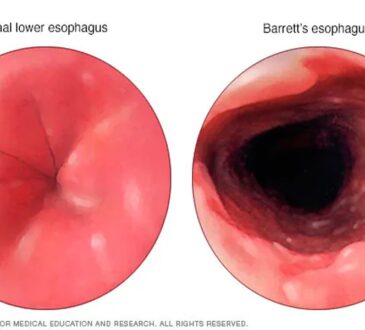
Your journey to optimal wellness extends beyond simply reaching a certain weight—it’s about understanding the profound connection between weight, hormones, and heart health. Hormones like insulin, cortisol, and thyroid hormones directly influence your metabolism, appetite, and fat storage, meaning hormonal imbalances can significantly affect your ability to manage weight. At the same time, excess weight can place extra stress on your heart, raising the risk of high blood pressure, cholesterol issues, and cardiovascular disease. By recognizing how these systems interact, you can make more informed choices and take meaningful steps toward lasting health.
The Role Of Hormones In Weight Loss
Hormones play a vital role in regulating your body’s ability to lose weight by managing appetite, metabolism, and fat storage. When hormones like insulin or cortisol become imbalanced, they can hinder your progress. Insulin resistance may lead to increased fat storage, while chronically high cortisol levels from stress can promote weight gain, especially around the abdomen. Understanding and addressing these hormonal factors is key to overcoming stubborn weight issues. Working with a healthcare provider can help identify imbalances and guide you toward personalized strategies, including lifestyle changes or medical support, to restore balance and support healthy weight loss.
Achieve Your Weight Loss Goals with Expert Medical Support
For many, losing weight is not just about aesthetics but about improving health outcomes. Doctor-supervised weight loss programs provide a structured approach to weight management, providing medical guidance tailored to your specific needs. These programs often begin with a thorough health assessment to identify underlying health issues that may affect weight loss efforts.
One of the main benefits of these programs is personalized care. Physicians can tailor diet plans, exercise regimens, and, if necessary, prescribe medications to assist in weight loss. Continuous monitoring ensures that adjustments can be made to optimize results and maintain safety, especially if you have existing health conditions.
Participating in a doctor-supervised weight loss program can offer a comprehensive approach that addresses weight and its related health concerns holistically. Whether you’re battling hormonal imbalances or cardiovascular issues, these programs can provide the support and accountability needed to achieve your weight loss goals safely.
How Weight Affects Heart Health
Excess weight can have profound effects on your heart health. Carrying extra pounds increases your risk for hypertension, a leading cause of heart disease. This condition forces your heart to work harder, potentially leading to heart failure over time. Additionally, obesity is associated with higher levels of LDL cholesterol and triglycerides, both of which can contribute to atherosclerosis.
Weight also impacts your heart through the development of insulin resistance, a precursor to type 2 diabetes. Diabetes significantly elevates your risk of cardiovascular diseases, as high blood sugar can damage blood vessels and nerves that control the heart. Thus, maintaining a healthy weight is vital for preserving your heart’s function.
Incorporating regular physical activity and a balanced diet can help mitigate these risks. Exercise strengthens your heart muscle, improves circulation, and aids in weight management. Meanwhile, a diet rich in fruits, vegetables, whole grains, and lean proteins supports overall cardiovascular health.
Heart Disease Management Through Weight Control
Managing weight plays a vital role in heart disease management, as excess body weight places added strain on the heart and increases the risk of conditions like high blood pressure and high cholesterol. Losing even a small amount of weight can improve heart function, enhance circulation, and help regulate key risk factors. A well-rounded weight management plan—featuring a heart-healthy diet, consistent physical activity, and regular medical oversight—can lead to lasting improvements in cardiovascular health. By maintaining a healthy weight, you not only reduce your risk of heart complications but also boost your overall well-being and energy levels.
Prevent Heart Disease with Expert Nutrition and Lifestyle Support
Engaging with a cardiac lifestyle and nutrition coach can be a game-changer in your weight loss and heart health journey. These professionals provide expertise in dietary and lifestyle modifications specifically designed to support cardiovascular health while promoting weight loss.
A cardiac lifestyle coach can help you develop a personalized nutrition plan that focuses on heart-healthy foods. They guide you in understanding portion sizes, reading food labels, and making healthier food choices that align with your weight loss objectives and heart health needs.
Moreover, these coaches offer ongoing motivation and accountability, which are critical in maintaining lifestyle changes. With their support, you can navigate challenges, celebrate milestones, and stay committed to your goals, ultimately fostering a sustainable, heart-smart approach to weight loss.
Strategies For Heart Disease Risk Reduction
Reducing your risk of heart disease involves a combination of healthy lifestyle choices and proactive medical care. A heart-healthy diet rich in fruits, vegetables, whole grains, and lean proteins—while low in saturated fats, salt, and added sugars—helps maintain optimal cholesterol and blood pressure levels. Regular physical activity, such as 150 minutes of moderate aerobic exercise per week, strengthens the heart and supports weight management. Managing stress through techniques like meditation, deep breathing, or yoga is also important, as chronic stress can negatively impact cardiovascular health. Avoiding smoking and limiting alcohol intake further reduces risk. Together, these habits form a strong foundation for protecting your heart and enhancing your overall well-being.
A Heart-Smart Approach To Weight Loss
Adopting a heart-smart approach to weight loss means focusing on sustainable changes that benefit both your weight and cardiovascular health. This includes choosing balanced, nutrient-rich foods that nourish your body without overloading it with unhealthy fats or added sugars, and avoiding extreme diets that can strain your heart. Regular cardiovascular exercise—like brisk walking, cycling, or swimming—not only supports weight loss but also strengthens your heart and improves circulation. Partnering with a healthcare professional ensures you’re progressing safely and effectively, with adjustments tailored to your needs. With a heart-smart strategy, you can achieve lasting results while protecting your long-term health.
Stay Heart-Smart: Expert Tips You Need to Know
Working with a preventive cardiac care expert can provide invaluable insights into maintaining heart health and preventing disease. These professionals specialize in identifying risk factors and recommending interventions to mitigate them before they lead to serious health issues.
An expert can guide you through regular screenings and tests to monitor your heart health. They offer personalized advice on lifestyle changes, dietary adjustments, and exercise routines tailored to your specific cardiovascular needs. Their expertise ensures that you remain proactive in managing your heart health.
Additionally, preventive cardiac care experts can help you understand the implications of family history and genetic predispositions to heart disease. With their guidance, you can adopt measures that address these risks and promote long-term heart health.
Conclusion: Integrating Weight, Hormones, And Heart Health For Optimal Wellness
Integrating weight management, hormone balance, and heart health is key to achieving long-term wellness. These three areas are deeply interconnected—hormonal imbalances can hinder weight loss, excess weight can increase cardiovascular strain, and poor heart health can impact overall body function. A heart-smart weight loss approach emphasizes safe, sustainable changes such as nutrient-rich eating, regular physical activity, and professional support. By addressing all aspects together, you’re not just targeting the scale—you’re improving energy, reducing disease risk, and supporting your body’s natural balance. Prioritize your well-being with a holistic plan that supports lasting health from the inside out.




